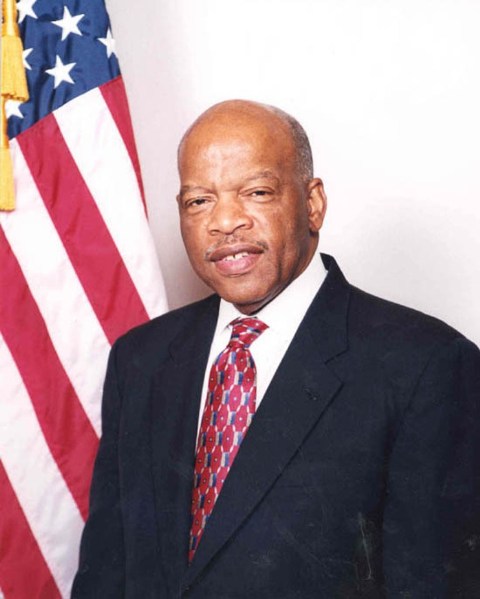Congressman John Lewis Brings Civil Rights Movement to Life in Lecture

U.S. Rep. John Lewis, 5th Fifth Congressional District, Georgia
The audience sat spellbound, listening to one of the primary field generals describe one of the seminal moments in U.S. history. On Wednesday, Feb. 21, in celebration of Black History Month, U.S. Congressman John Lewis spoke to more than 200 Baylor law students, Baylor faculty and the general public about his involvement as one of the "Big Six" in the Civil Rights Movement in the early 1960s.
"I tasted the bitter fruits of racial segregation and discrimination," he said, as he described growing up in Alabama. The son of tenant farmers, he recalled being required to sit in the balcony at the local movie theater, because the lower level was for "whites only" and being turned away at the local public library. At age 15, he heard Martin Luther King Jr. for the first time.
"I felt like Dr. King was speaking to me. I was inspired to get in the way," he said.
He met King in 1958 and started his long journey with the Civil Rights Movement. During the height of the Civil Rights Movement, from 1963 to 1966, Lewis was named chairman of the Student Nonviolent Coordinating Committee (SNCC), which he helped form. At the age of 23, he was an architect of and a keynote speaker at the historic March on Washington in August 1963. In 1964, he coordinated SNCC efforts to organize voter registration drives and community action programs during the Mississippi Freedom Summer.
The following year, Lewis helped spearhead one of the most seminal moments of the Civil Rights Movement, when he and Hosea Williams led more than 600 peaceful, orderly protestors across the Edmund Pettus Bridge in Selma, Ala., on March 7, 1965. They intended to march from Selma to Montgomery to demonstrate the need for voting rights in the state. The marchers were attacked by Alabama state troopers in a brutal confrontation that became known as "Bloody Sunday."
During the struggle for civil rights, Lewis was arrested 40 times, attacked by mobs and beaten by law enforcement officers. But he emphasized he was involved in a movement that was non-violent and protected by law.
"We created a mass movement that created a non-violent revolution under the rule of law," he said. "Under the rule of law, we can see changes. Because of the law and the involvement of citizens, I am where I am today."
Lewis was elected to Congress for the first time in 1986 and has been awarded numerous honorary degrees and other honors from colleges and universities throughout the United States, including Princeton University, Duke University, Brandeis University, Columbia University, the University of Texas, Georgetown University and Harvard University. In 1998, he published his memoirs, "Walking with the Wind: A Memoir of the Movement."
He recalled an incident from his childhood that served as inspiration for the title of his book. When about seven or eight, Lewis was playing outside his aunt's house with his siblings and cousins. A serious storm blew in forcing the children inside.
"The wind started blowing, the lightening started flashing and we were all in the house," Lewis said. "My aunt was terrified; she thought the house would blow away. We held hands and we were crying. And when one side of the house appeared to lift from its foundation we'd try to hold it down with our little bodies. Then when the other corner of the house appeared to be lifting up, we would walk with wind over there, trying to hold it down. That is what (the movement) was about...trying to hold the house together."
Lewis pointed out that students can make a difference when encountered with injustice. "You might not have the drama that we had during the Civil Rights Movement, but we still have need for change. It is important to know that when I was a student, I helped make change. You don't have to wait until you are in the workplace," he said.
Baylor law students were enthusiastic in their praise of Lewis and his speech. "I thought he was very motivational," said Nina Patterson, who is in her third quarter in law school. "His was one of the best speeches I have heard in the last several years."
Shaw Cunningham, another third-quarter student, agreed. "This was a wonderful opportunity to hear a first-hand account of the movement. It is a viewpoint that we don't hear enough. It makes you look at that time in history in a whole new light," he said.